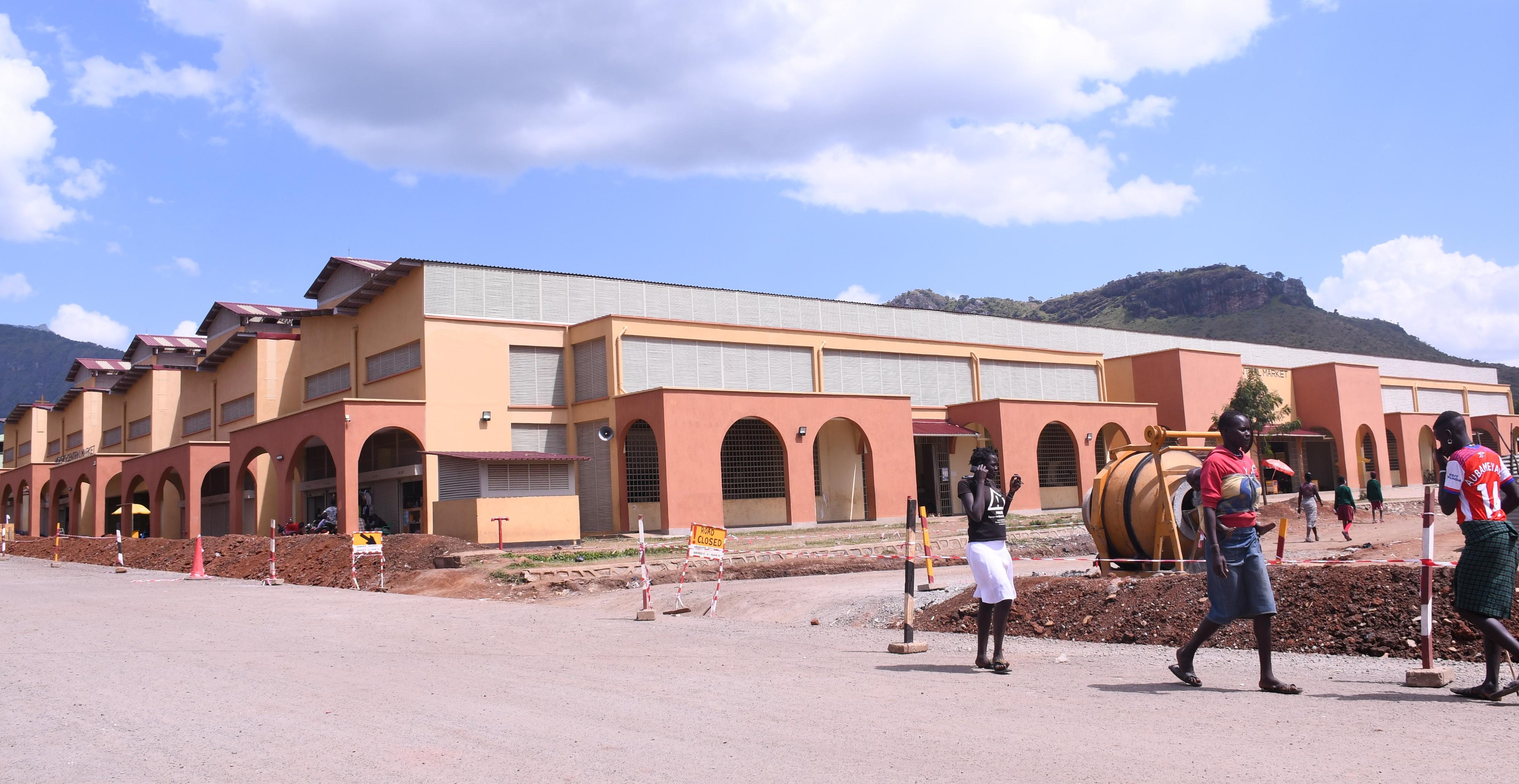Traders want design change in future modern markets

Vendors go about their business in Biiso market in Buliisa District on Tuesday. The vendors say they have to go back with their goods every evening because the market does not have storage facilities. PHOTO | ALEX ASHABA
What you need to know:
- A number of multibillion market complexes build for the urban population in different parts of the country have been dogged by almost similar problems, ranging from power outages, accessibility challenges to space issues.
Business operators across key regional cities and municipalities have called for an immediate change in the design of future modern markets, citing design flaws as one of the barriers affecting business in the current markets.
Over the years, the government, with support from African Development Bank (ADB), has built a number of multibillion market complexes for the urban population, but they have been affected by almost similar problems, ranging from power outages, accessibility challenges and space issues.
The chairperson of Jinja Central Market Vendors’ Association, Mr Henry Mugimba, commends government for providing a modern market, but adds that the design does not favour some of the vendors, especially those dealing in second-hand clothes.
He says the stalls in the Shs36b complex are too small to accommodate their merchandise, which has encouraged street vending.
“The contractors changed the designs, the sizes of the stalls were reduced from the original plan that recommended between five and six metres to between two and three metres, which are too small for the vendors to run their business,” Mr Mugimba says, adding that standby generators and CCTV cameras have never been operational since the facility was commissioned.

Soroti Main Market in Soroti City. Several modern markets built by government in urban centres are dogged by challenges that have made vendors to shun them. PHOTO | GEORGE MURON
Similarly, the Shs34.9b Arua Central Market, which was constructed by the government under the Markets and Agricultural Trade Improvement Programme (MATIP), with support from ADB, is dogged by conflicts.
Some vendors accuse city authorities of allocating prime stalls to themselves.
This has created a standoff as the vendors refuse to relocate to the market and occupy stalls in the upper floors.
About 755 stalls have remained unallocated. The market was constructed to accommodate at least 5,000 vendors.
In Masaka City, the new central market, where the government injected Shs18.4b, is yet to be completed four years after the project was awarded to the contractor.
Changes in designs and the two successive Covid-19 induced lockdowns have partly been blamed for the delayed completion of the project.
Mr Ronald Katende, the Masaka Resident City Commissioner, says the market will officially be commissioned next month.
The new market, once complete, is expected to have working space for more than 2,000 vendors, which is twice the number that was previously working at the old market. In Gulu, the city authorities have banned market vendors from owning more than one stall at the Gulu Main Market.
Last week’s development followed a report by an ad-hoc committee recently commissioned to investigate the widespread corruption allegations and ownership of multiple stalls.
The committee found that a total of 52 individuals owned between two and three stalls, mostly in prime areas.
The investigation also found that of the 1,812 stalls, 55 lock-up shops and 59 stalls were empty.
Mr Patrick Omaya, the chairperson of Gulu Main Market vendors, says several vendors who own multiple stalls at the market have raised concerns over the location of the stores, which they say are not easily accessible.
In Mbarara, the business community, residents and leaders of Mbarara are happy with the completion of the central market, which was constructed at Shs21b by Roko Construction Ltd.
More than 700 vendors returned to the market after four years operating at the Independence Park, where they had been relocated to give way for the reconstruction of the facility.
In Lira City, several vendors accuse managers of Lira Main Market of demanding sexual favours from them in exchange for stalls and shops in strategic places in the market.
In 2011, Lira municipality authorities relocated more than 2,000 vendors to Coronation Park in Lira Municipality to pave way for the construction of the market.
“Some of us who have refused to give in to their demand have been kicked out,” says a vendor, who preferred anonymity.
Mr Peter Olwoch, the chairperson of Lira Municipal Market Traders Association, however, distances himself from the allegations.
The Kabale Municipality mayor, Mr Sentaro Byamugisha, says the construction of Kabale Central Market has already been completed and the contractor is about to hand it over for immediate use.
In Tororo, municipal council authorities have embarked on sensitisation to implore vendors to voluntarily vacate the streets and go back to the market.
The directive was last Friday announced by the Tororo municipal council mayor, Mr Kennedy Orono Nyapidi, during the launch of a garbage truck that was recently donated by the government.
Mr Richard Bahemurwaki, the chairperson of Biiso market in Buliisa District, says the new market currently accommodates 60 vendors, adding that as leaders, they are against its structural design. He says the market does have permanent stalls.
“The vendors have to go back with their goods every evening because the market does not have storage facilities and lockups,” Mr Bahemurwaki adds.
Compiled by Simon Peter Emwamu, Denis Edema, Tausi Nakato, Abubaker Kirunda, Felix Warom Okello, Clement Aluma, Al-Mahdi Ssenkabirwa, Wilson Kutamba, Felix Ainebyoona, Michael Ojok, Tobbias Jolly Owiny, Bill Oketch, Robert Muhereza, Emmanuel Arineitwe, Joseph Omollo, Fred Wambede & Alex Ashaba.




